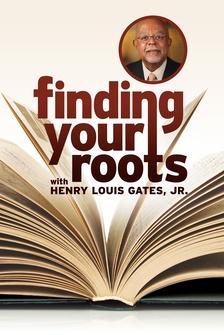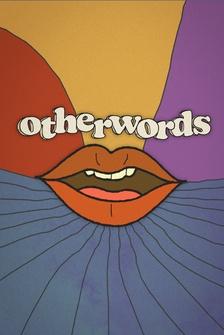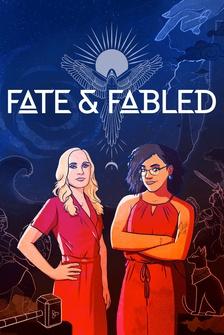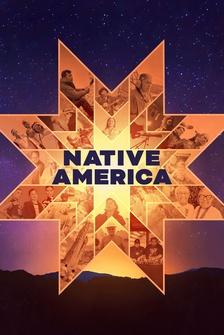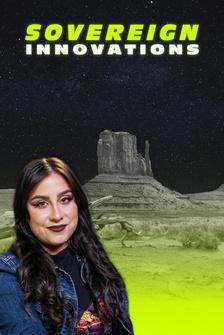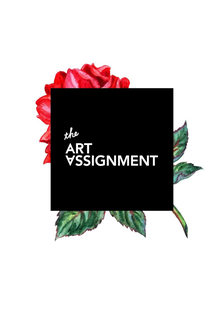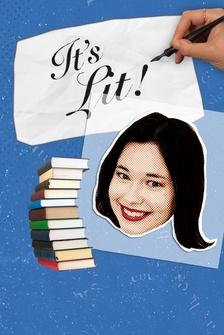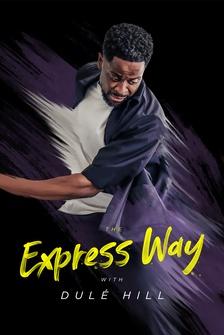(typewriter typing) (bell dinging) (upbeat music) - [Jeremy] You learn from the failures, you learn from the rejections.
You don't learn really from success.
- [J.T.]
In addition to being a renowned novelist, Jeremy Finley is the chief investigative reporter at the NBC affiliate here in Nashville.
And in 2016, he was named the Journalist of the Year by the Tennessee Associated Press.
Now he's taking the co-host seat for "A Word on Words".
And I, for one, am thrilled.
We've been friends and colleagues for a long time, and I know what a great match you are for the show.
- I can't say how happy I am to be here with you.
This is really great.
- We taped an episode back in season five for "The Dark Above", which is just an incredible novel.
I highly encourage everyone to go back and watch the show and see you in action as an author, but now we get to see you in action as Jeremy Finley host of "A Word on Words".
- This is such a real dream for me in a way, you know, to, to join you here.
And then of course with John Seigenthaler.
you know, really starting the production and being such a, a hero of mine, both journalistically and for his civil rights work.
I couldn't be happier to be here.
- If there was a novel called Jeremy Finley.
What would the elevator pitch be?
- I think the elevator pitch would be something along the lines of an investigative reporter, races against time to understand family love and work and his place in the world.
- Wow.
- How about it?
- Did you just do that off oh man.
- I mean, I'm telling you, - That's impressive.
- You get it kind of like gets, you know, hammered into your head, right?
Like, you gotta have your pitch down.
Like, who are you?
I'm like, "Oh, I'm just trying to find my place in the world."
- It's what we're all tryin- Is that on your website?
- Because if not, you should write that down.
- I wanna quote you.
- That was really good.
(J.T.
and Jeremy laughing) - Well, thank you.
- It was really really good.
- My problem was gonna be, I have so many questions for you too, even though we've been friends for so long, there's just, there's burning questions that I want to ask as well.
But I'm fortunate that I, I know you beyond being a writer, and I wish everybody could go to dinner with you and Randy, (J.T.
laughing) your husband, so they could, you know, they could understand, you know, you write, I don't want to say, you know, disturbing novels, but you write, you know, - it could be a little disturbing, - you know, there's some disturbing elements here.
But one of the things that I think always astonishes me is you consider yourself an introvert.
- Very much so.
This is a true word on word story.
When they rebooted the show and approached me, I thought they were just asking my opinions about the show, about things that they wanted to do, and they asked me to host.
And my immediate reaction, and I said it out loud, was, "No, absolutely not."
But it was such a crazy thing because I am such an introvert, so this has been a really incredible experience for me.
- Yeah.
- Growing as a person, being able to come out of my shell, being able to talk to strangers - Sure.
- And get to know them and everything.
So, you know, it's hell, it's getting better as I get older.
- But talk about growth.
Right?
- Right.
- That's what we're all about.
- Right.
- From where you were to where you are today, that's pretty great.
- Well, the show is so important to this city.
- Yeah.
- And the legacy, the literary legacy that John Seigenthaler left 40 years of Sunday mornings with "A Word on Words" with John Seigenthaler.
I mean, how do you not suck it up?
- Right, and say - And go make that happen, right.
What, where, you know, do you think John would ever be afraid to do that?
I'm sure he was afraid of a number of things at any number of times and he never backed down.
- Right.
And I always remember that any time I get nervous or scared, you know, what would John do?
- You know and I think that's great.
- I went back to watch some of his old interviews and not only is he obviously smart and but the charisma that he had.
- Right.
- Which I think was so, you know, it just came upon.
I mean, every time you watch the show, it was just like, man, he just not only has a command, but everybody feels at ease.
And I think that's what a great interviewer does, right?
He almost wanted to disappear and just make all the lights and the cameras and everything disappear.
And you're just wanting to know.
And what I just think made it so original and so great is that it was peeling back the layers of people we know very little about.
Because I think as writers, when we're just doing that, all we wanna be known for is the work.
Talking about our personal life isn't, isn't why we do this.
- Right.
- And you and I know we've interviewed a lot of writers and it can make this isn't unusual.
This is uncomfortable and it's our job to make sure they feel comfortable so people can know them and know about why they do what they do and they the write the way they do.
And so, I, I'm with you.
It's kind of a dream gig.
- Did you know that John was my very first interview ever?
- No kidding.
- For my debut novel.
- Really?
- Very first interview I ever did was on "A Word on Words" with John for "All the Pretty Girls".
And I don't know if I've ever been more terrified in my life.
- Oh my gosh.
- And we sat down and started rolling and he made me feel so comfortable.
- Yeah.
- He had read every word of the book.
- Yeah.
- We connected from, you know, his, his Nashville crime reporting days.
It was so great.
- One of the things that people will be astounded to hear is when you were in college, you actually got some really nasty feedback from a professor.
And I don't wanna misquote the professor, but I wanna know what you would say to that college-aged J.T.
about what she was about to hear from her professor.
So tell people what he's, what this professor said to you and what would you say to yourself in college?
- So she just flat out said, I wasn't good enough to get published.
I wanted to go and, and get an MFA.
And she, she would not write me a recommendation.
She's like, "You, you are not good enough to be published.
You need to know that."
And so I quit writing, right.
For eight years.
Honestly, I'm glad that that happened.
I wasn't ready.
I wasn't ready.
Obviously nobody in college is ready.
But it set me on the path to meet my husband the first night of graduate school in political management instead of at, you know, getting an MFA.
I went and got a, a master's in, in politics and met him.
And so I really wouldn't change it because it also gave me that little chip on my shoulder when I started writing again.
- Right.
- Oh really, well let's see.
- Yeah.
- Let's just see about that.
- Yeah.
And also it, you and I have talked about this so many times, so much of our jobs are overcoming failure, right?
And I think that's what we have to learn as we go along, is that, you know, that's what you learn from.
You learn from the failures, you learn from the rejections.
You don't learn really from success.
The first person that ever read something that I'd written in publishing flat out emailed me back and said, "You need to learn how to write."
And I was already a working journalist and had been for years.
And I thought, "Well, I do know how to write, I'm a journalist," you know, I know this, but I didn't know how to write fiction.
I'd read fiction my whole life, but I didn't know how.
So I had to study and I really had to study books instead of just reading them for pleasure, which is what I'd always done.
But if I hadn't gotten that really, you know, kind of punch in the gut, you know, I may have like treaded water for even longer than I actually did it, it made me realize I had a lot to learn.
And that's when you go back and you, you read your favorites and you think, "Oh, this is the structure they wrote.
Oh, this is how they got the hook at the end of each chapter," and that kind of thing.
So I think failure's important.
Right?
(classical music) - That's, you know, how did you get to Nashville?
I, you're, you're obviously, we as we said, the investigative journalist for, for channel four.
- Right.
- And that's a lot of writing on the nonfiction side.
I wanna know both how you got into that career and also how you morphed into, from journalism to being a novelist.
- So I, ever since I was in the fifth grade, I knew that I wanted to be a novelist.
Like, literally it was, I wrote a short story.
It was for our contest at school, and I won.
And that, and there was just something that clicked in the fifth grade to know, this is what I want to do.
But I come from, my parents were, my dad was a veterinarian, my mother was a piano teacher.
We live in a small town.
My family, everybody learned to trade, right?
We were, you know, on the line between, you know, blue collar, white collar right on the line.
So there was no option to go on to college and throw your, you know, chance at your life into the wind and say, I want to be a novelist.
I had to learn a trade.
And my parents had grown up watching 60 Minutes.
That was my first exposure to journalism.
And so I was like, well, that's what I want to do.
I want, but I wanna write for magazines and I wanna write for "Rolling Stone", and I want to be a, a, a journalist in that sense.
So it was always long form, it was always in depth.
I was never really that captivated by covering the, the local news.
But you gotta do that when you start.
So that's what I did.
I I, I covered crime, I covered and I loved it, and I did all those things, but the goal was always to work in investigations.
And WSMV had a legendary investigative unit.
And so I literally came to learn from one of the reporters who worked at that unit thinking maybe one day I'll be able to get into it.
Well, I got into it pretty quickly.
- Yeah.
- And so it was the job that brought me here and the potential to learn from the investigative unit.
And so I, you know, life happened right.
Turned to my thirties, had children thinking, you know, man, if I don't really start doing this and try to do this novel thing, it's, it's just never gonna happen.
You know, it's all you have to do.
And so it was years, it was decades.
And it wasn't until I was 44 that I was actually published, but I'm glad I'm like you in that sense that I had a lot to learn and I had a lot to learn about how to tell really great thrillers and novels and, you know, and, and so it, as frustrating as it was for me to have taken so long to make this happen, it was the way it had to be.
And I've, I've loved every minute of working as journalist.
It's hard.
It is time consuming.
It's rough on your family.
It's, it's rough all around.
But when you do investigations and you firmly believe that what you're doing is uncovering problems in society and hopefully getting some kind of, of improvement along the way, it makes every day worth it.
Is it easy?
No.
It's every day is tough to some degree, but I'm, you know, I wouldn't change anything.
It's a great, it's, it's a great job every day to go to.
And then I'm lucky, people ask me all the time, "Well, how do you, how do you juggle, How do you juggle all of these things?"
But when you love it, it's just like, if you love to run, you run.
You know, if you love to fish, you fish.
For us you love to write, - So you write.
- And so you write.
I wonder what, for you, either as a, as a young girl or a young woman, or even recently, was there one book that really changed you?
- The biggest has gotta be don't laugh cuz this is, this is not fair as a book because it's a compilation is the Norton Anthology of Poetry.
- Of course.
Right.
- I read, I'm a huge Tennyson fan.
- Mm.
- Because I read "The Eagle".
I couldn't have been more than seven.
- Yeah.
- Right.
And I, I read this and recognized metaphor for the first time.
- Yeah.
- And went, "Oh, words can do that".
- Right.
- Wow.
- Wow.
- That blew my mind.
- And then "Clan of the Cave Bear" Jean Auel, there is something about that book that, you know, it, it is probably why all of my stories are about a woman who comes into her power and becomes a leader because Aya is exactly that character.
- Yeah.
- She, she has to succeed in this world, Neanderthal world where she is the other.
- Right.
And, and she does and she rises to a, a position of power in the clan.
- Right.
- And, and all of those books.
But that one in particular, it's very brutal.
And I learned a lot of things I probably shouldn't have reading it at the age that I read it.
- And that's an intimidating novel.
It's thick.
- Well, yeah I You know, it was, - I always like the thick books.
- Yeah.
- When I, when I went to buy a book, when I went to the store cuz I grew up in the woods, right.
And so the bigger the book the better cuz it took longer to read.
- Sure, right.
- You know, and I read really fast.
So I was always finding the, the biggest ones.
And my parents, the rule was if I could reach it on the shelf, I could read it.
- Okay.
- And I was really tall.
- Okay.
(J.T.
laughing) - From a very young age.
- So you got it, - I've always been really tall.
- How old do you think you were when you read it?
- Oh, I mean, it would've been the, the year it came out.
So probably eight or nine.
I read "The Thorn birds and "Roots" the same year and I think I was eight.
- Wow.
- Yeah.
- Yeah.
You were drawn to it.
I mean, those are - I was, I was always drawn to the biggest, most complicated stories.
My dad's sci-fi stories, you know, these big commercial fiction novels.
- Yeah.
- But yeah, that I, I was thinking about that and, and I think that is probably where that theme really landed for me.
- Wow.
- How a woman comes into her power.
- And I think that is, I mean, it's a story that never gets old.
- No.
- Right?
- Any chosen one coming of age - Sure.
- Works for me period.
- I think that, you know, man, woman, transgender, anybody coming into their power overcoming diversity, right?
That's, that's the key.
- Absolutely.
You know, the growth of the character, what this person is able to overcome that draws us to every book.
If, you know, if we read stories about perfect people, we'd be get, we'd get bored.
- Right.
- We wouldn't nobody wants to hear that story in the first place.
- No.
- But that, I remember, that's one of the first books that I remember hearing about because it was such a sensation at the time.
- It was, it was.
- And I gotta say at eight, I wasn't reading "Clan of the Cave Bear", I was reading a lot of comic books.
(J.T.
laughing) There's a lot of comic books.
- I was always a little precocious.
- What is yours though?
What is your, what was your book that absolutely changed you?
- So in, in my life there are two as well.
The first was "The House with a Clock in Its Walls" by John Bellairs.
And to me that was my first exposure to the world of the supernatural that kind of blends with our own world.
Right.
The speculative fiction.
And it's about a, a young boy who is, is kind of lost in the world and he uncovers this secret in this dark secret in this house.
And he has this unlikely group of friends.
And, and to me it was kind of that same experience where it was this boy was lost and he found himself with these friends and he found himself through really harrowing circumstances.
And to me, that is just, will always be one of the hallmark books for me.
And the second was of books called "A Boy's Life", and it's by the author Robert McCammon.
And it is also very singular.
It is a story of a, of a boy that has gone through some traumatic experiences.
And it is his life of everything that happens in his life.
And I think in about a year and all of the elements of kind of supernatural, but also adventure and how he finds his journey with his father throughout this book.
And it, it reminded me again, of how I love the, the concept of our ordinary lives.
And then when something extraordinary happens.
- Right.
- And in this book, he lives a very ordinary life and he uses his imagination to overcome all these kind of obstacles.
But then he, he faces the supernatural at one point.
And it's so jarring in the book, you don't see it coming that I thought, "oh, the, the, this is my, this is my book."
- That is your jam.
- That's my jam.
- Because that's, that's what your books are.
- That's what my book books are.
- They are speculative fiction.
- They are.
And I, and I think that there's something to me, maybe it's because I'm so rooted deeply in the real world everyday.
- Yeah.
- And reports on facts and, and non-fiction that the idea of something entering our lives that is so unexplained and, and so people, so few people can understand what it means.
There's just something that draws me to it, you know, And I think it carries with me even to this day as I'm writing.
- Tell us about the books.
- So the books started off, I was very interested in the political dynamic of a political family.
I was interested in the, the dynamic of a political family that would face something supernatural.
Because you've studied politics, your husband's involved in politics.
I have a master's degree in public affairs.
There's nothing more, I think regimented than a political family.
They know what they have to do.
They know who they have to be and whatever secrets they have, they have to keep to themselves.
And so I wanted to do this intersection of these generations of family, of this that ultimately becomes this powerful political family and how their lives intersect with missing people and people that disappear for no explanation.
And how they can, our main character, how she keeps the secrets that she from her own past about this and how it could potentially unravel her husband's political career.
- [J.T.]
Mmhm.
And so it, and then it becomes a multi-generational family saga of how this has impacted her family for years.
And so it was, it was such a, a joy for me to not only write, but to tell the story because the story is based around women that are in their sixties.
And people have asked me over and over again, "Well, how did a, a guy in his forties write about this?"
And I was like, "Well, I paid attention."
I paid attention to the women in my life who are in their sixties.
And I, I, I saw the, the interesting dynamic there of these are women that many time were marginalized and, and sometimes they have, you know, found their way in the world to become more than what their families or their husbands expected them to be.
And I thought, wouldn't it be great for one of them to have a, to have a secret about that she couldn't tell anyone, but would truly be world changing if people found out.
And so it was, it was, that was the whole crux of the story.
And, and I think that we like telling stories of unlikely heroes and heroines.
You know, we like to tell the stories of people that don't get the light shine shown on them as often.
So for me, it was important to not only tell a thriller that I hopefully was gripping, but also made people say, "Oh, okay.
You know, this is someone who needs to be listened to.
This is someone whose story is worth hearing."
And I think that's kind of what we do.
Right?
Sure.
- That's what we do every single time.
- Sure.
- I think about, "It's One of Us", the time I have the pleasure of having to just read and it was phenomenal.
And I, I want you to talk about that book.
And also I think the, the very personal story behind it.
- Mm.
It, it is really funny though.
Reading friends books is always fraught.
- Right, right.
- Because you're always just kind of like, "Ugh, wow I really hope I like this."
I remember when I was reading "The Darkest Time of Night" and, and it was before it had been published.
And, and yeah I was like, "Oh God, I really wanna love this".
And I was a few pages in I'm like, "Ooh, I really love this."
- Isn't that great?
And then you have this whole description of Colorado that it was like, "Oh my gosh, this is, I drive that road.
That's exactly it."
- Yeah.
- And I got so excited.
I mean, there's something really cool about like, oh my gosh.
- It is and - It's neat.
- We have writer friends and when in reading it's one of us yes it is a thriller that literally, I mean, it, it just, it hits all the right paces.
I mean, it just, it hooks you from page to page, but I know you.
- Yeah.
- And there's something deeply personal about this book and I, I wondered, "How am I gonna address this with J.T.?
How am I gonna ask her about this?"
And so that's something that you have to become comfortable with talking about this book.
- I know I do.
We've talked about this of how I'm gonna go out in the world and discuss this because it is really based on my story of infertility and all of the things we went through trying to have a baby, which we ultimately never had.
So I'm, I'm one of the, the one in 10 who suffer from infertility.
And I just finally figured out that what I wanna talk about is there's life on the other side of this.
There is a good, joyful, wonderful, rich, full life.
- Right.
- You don't have to have children.
And it is something so ingrained in our society.
- Sure.
- Especially into women, that that is your job.
Your job is to produce an heir.
- Right.
And that's been happening for a really long time.
And guess what?
You don't have to, you can have a strong and happy marriage.
You can travel, you know, in "Harry Met Sally", they talk about, you know, we could, we could jet off anytime we want.
And the, you know, the cold spanish tile and all of that.
- Right.
- Yeah.
That is a very true thing.
- So it's, you know, it's, it's very interesting.
It's interesting to me that as an investigative journalist, you take those elements, put 'em in the book, but you twist it into a way that you're not experiencing.
- Right.
- This, and I normally do that.
I don't normally dive into my own world.
- Right.
- To pull things.
But, but really every book is us.
Every character is us.
- Right.
- In some way, we've, we've created them the good, the bad, the indifferent, the, the mediocre, you know, tertiary character.
- Right.
- That's serving pancakes in a diner.
I mean, everyone from the top to the bottom is us.
- Right.
- Every story is us.
- And I think that what makes this book so effective, and I think the message that it carries is let's not, you know, fool anybody watching this, it's a great thriller.
Right?
It's a great who done it when people understand the title of the book.
- Right.
- It really just hits home is to, "Oh wow, what's gonna happen with this?"
But it's something that you can go out into the world and say to other women, "You aren't alone.
You aren't alone in facing this."
And there's no greater aspect of anything that we take away from literature than to find out that we're not alone.
- That's why we read.
- That's why we read, - That's why we read.
- And as, as authors, our job is to say, "Hey, by the way, you're not alone by the way I'm gonna entertain you and I'm gonna take you on this journal journey.
But maybe you're going through something and not only is this gonna take you out of that pain that you're in for a minute, but it's gonna tell you you're not alone.
And we go back to even books like "The House With a Clock in Its Walls."
I, I was a kind of nervous kid full of energy.
I always felt a little like outta place nobody knew, quite knew what to do with me.
And I identified with that main character in that book.
And I thought, "Okay, I'm not alone."
And I think that's something that one of the powers we have as writers that we can say, "Okay, you're not alone".
And that's why it's important to, you know, to tell that story.
Now "Her Dark Lies", (J.T.
laughing) - That's a totally different - Well, that's somebody else's story.
- That's somebody else's story - That is a retelling of somebody else's story.
It's, it's my Rebecca.
Right?
- Yeah.
- It's, you know, the whole premise, the whole idea was what if Rebecca hadn't died?
- Yeah.
- Okay, well here's what would happen.
But it's somebody else's story.
And I don't know that those books connect as well with readers.
- Retellings are great, they're really exciting.
- Right.
- But are they the ones that linger?
- Right.
- Are they the ones that really stay with you?
- Yeah.
(piano music) What is one book you think everyone watching should read?
- I think the book for me right now is "Never Let Me Go".
"Never Let Me Go", - Oh incredible.
- Incredible.
And it is a story.
- It it's his evolving.
Cause when you read even "Klara and The Sun", which is his new novel, it's all about our relationship with technology and what it reflects on us as human beings.
And so much of our lives now are our phones and we're talking to Alexa and Siri and where, you know, expecting machinery to do all this for us.
And then when you look at cloning and all of these parts of technology that are intersecting with our lives, he does such a phenomenal job of exploring what this does to us as humanity.
I think it's essential reading.
It'll break your heart.
- Yeah it is heartbreaking.
- It's heartbreaking.
But it's also just so illuminating.
He's just a, he's a treasure.
- Also don't watch the movie.
- Don't watch the movie.
- Because they tell you that conceit in the opening part of the movie and then it's like, it ruins, but wait, but wait you don't get to experience that.
- Oh, - Sublime.
- It does horror.
- Horror.
And then you know that the humanity of it all and the cruelty of it, but also how they survive.
- Right.
- It to me that is the, the quintessential novel.
What about you?
- Oh gosh, I, you know, I'm gonna go with something lighter and happier.
Happier.
I don't know that it's happier.
The "It Girl" by Ruth Ware.
- Oh, okay.
- It is hands down her best.
- Okay.
- It is a really cracking good thriller and an interesting experience because the main character's dead.
It's always hard to pull that off.
- You're right it is.
- It's always hard to pull that off.
And she pulls it off and it's not, it's, you know, it's about her murder and how she was murdered.
I, I just thought it was, it was really well done and it's set into Oxford and so it's a lot of fun.
So it's a quick, a quick read so you get the, the intellectual read and the fun read.
- This is something that I ask people all the time when I interview them and people always think it's a little bit of a strange question, but I think this motivates us so much.
What makes you angry these days?
- You know what makes me angry, and I will be very honest.
When I lived in DC and worked in politics, we, you know, we fought really hard against one another.
And then that was during the day.
And once we clocked out, we all went to the bars together and hung out and talked and argued and, and just had a good time.
And we respected one another's opinions.
And I feel like we've lost that.
- Yeah.
- That ability to say, You know what, I totally disagree with you.
- Right.
- But I like you anyway.
Let's go get a drink.
- Right, mmhm.
You know, I, I think we've lost that and I think that's what I'm most angry about.
- I I think when, and I think you said it so well there, and I also think the inability of people to change.
- Mm.
- And it seems like something to be that you're like, "Wow, you're angry about that."
Well, what makes me angry about it is that I think there are so many people that are set in their mind frame, whether it is political or economic or, or, or whatever your opinions are based around your inability to see someone else's perspective.
- Right.
- I think is is why books are so essential, because it opens our world to other people's experiences and makes us think, "Oh, maybe I was wrong".
And I think that's one of the great things as human beings we can do, is to sit there and say, 'Maybe I was wrong.
Maybe I misunderstood this.
Maybe I didn't take your thoughts into consideration in talking about words."
And essentially at the end of the day, that's what journalism does.
That's what fiction does.
It opens your eyes to something you weren't aware about.
- Right.
- The question is, are we strong enough to change?
Are we strong enough to change who we are to become better human beings and, and people at the end of the day.
That's what makes me angry.
- Jeremy, this has been so much fun getting to know you a little bit better.
- I agree.
Thank you J.T.
- Thanks for joining us for "Word On Words", because I'm thrilled to be able to work next to you.
- We're gonna have a lot of fun.
- We are.
And thank you for watching "A Word on Words".
I'm J.T.
Ellison.
- And I'm Jeremy Finley.
Keep reading.
(bell dinging) (classical music) - [Jeremy] I gotta say at 8 I wasn't reading "Clan of the Cave Bear", I was reading a lot of comic books.

